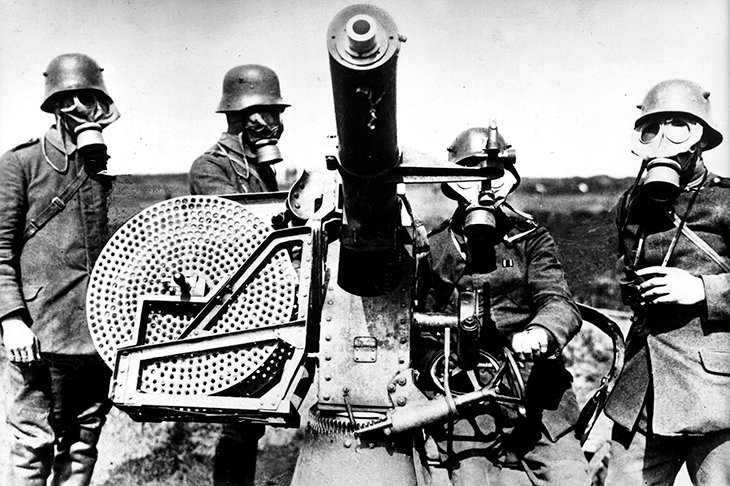This book does not mess about. It tells the story of the fighting on the Western Front between 1914 and 1918, just like it says on the tin. It offers a proudly traditional military history, from the opening skirmishes, through the titanic clashes of the Marne and Verdun, the Somme and Ypres, on to the often overlooked Allied sweep to victory of the Hundred Days. It describes what happened when, where and why. There is no discussion of why the war was fought in the first place or of what the men thought they were fighting for. The war here, as it was for that generation, is simply an inescapable fact. We learn enough about the political context and manoeuvring in London, Paris and Berlin to explain events on the battlefield, but no more.
Nick Lloyd helps to prepare officers for higher command at the Joint Services Command and Staff College, Shrivenham, and it shows. He does not need to tell his students that war is hell, and he chooses not to thrust it down our throats, either. Occasionally the voice of an ordinary soldier reminds us that these are humans rather than chess pieces, but this is not a book about the experience of life in the trenches. Nor do we hear much about the home front, poets or shell-shock. Instead, Lloyd lets the facts tell their own story, giving us a seat in army headquarters to watch the generals as they try to fight their war.
That story has been thoroughly researched in volume after volume of the official histories, in memoirs and archives in three languages, and in the mass of specialist studies, compiled since the 1980s, which have analysed the first world war and its armies as never before. Lloyd wears his scholarship lightly, though. Rather than plod pedantically through each point under debate, he weaves analysis and argument into his story, allowing it to emerge through judicious selection of evidence, careful structuring of narrative, and the occasional nudge and wink to the specialist. This is harder to do than it looks, but he has produced a well written, clear and snappy account of a familiar but always dramatic story.
The approach may be traditional, but The Western Front is whizz-bang up-to-date. Too often in English-language accounts of the war, the German and French armies still seem absent, but here they are given their due. We feel the German high command’s consternation as it experienced the full weight of modern industrial warfare in the later months of the Battle of the Somme. Likewise, we sense the mutual suspicions and frustrations which sometimes put sand in the Vaseline of the Anglo-French alliance.
Lloyd’s response to stale old debates about whether first world war generals were butchers and bunglers is a theme running through this book: some were, but most were not. They were dedicated professionals doing their best to get to grips with the unprecedented problems of commanding million-man armies during the kind of industrial war no one had ever fought before, in the face of lethal opposition.
The pace of tactical and technological change, as measure clashed with counter-measure, was dizzying. British generals found it hard to keep up at times, but so too did their French and German counterparts. By the autumn of 1918 the French, British and American armies had come up with a sophisticated combined arms tactical approach, integrating artillery, infantry, tanks and aircraft, to which the Germans were unable to respond. This, together with the cumulative attrition of four years of war, brought about total battlefield defeat for Germany. The most surprising thing about the fighting on the Western Front is not that it went on so long, but that it was over so quickly.
Lloyd has taken military history back to basics. To understand war fully, we need to grasp its operational dynamics and brutal realities. That is what he has laid out in this, the first volume of a projected trilogy on the first world war. If he can do the same for the Eastern Front and the wider war, this project will establish a useful baseline on which future histories can build. In the meantime, The Western Front sets a fine example of operational military history. It is the best modern single-volume history of war on the Western Front and is likely to remain the standard account for some time.






Comments